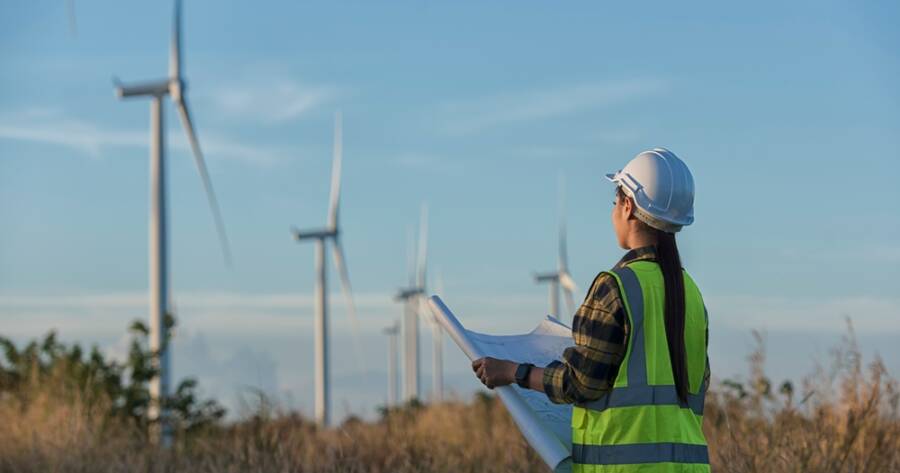As climate change and environmental concerns become more pressing, the demand for sustainable careers—often referred to as “green jobs”—is growing rapidly. These roles focus on reducing environmental impact, conserving natural resources, and promoting sustainability across industries. For those seeking to align their professional goals with environmental responsibility, there is an increasing array of job opportunities that contribute positively to the planet.
The Growth of Green Jobs
Green jobs encompass a wide range of professions, from renewable energy technicians to environmental scientists, urban planners, and sustainability consultants. As awareness of environmental issues grows, so does the demand for roles focused on mitigating climate impact and promoting sustainability. According to the International Labour Organization (ILO), green jobs are expanding across various sectors, with particular growth in renewable energy, waste management, conservation, and sustainable agriculture.
In recent years, industries traditionally seen as separate from environmental responsibility, such as finance, real estate, and manufacturing, are increasingly adopting sustainable practices. For example, companies are hiring sustainability managers to oversee corporate social responsibility (CSR) initiatives and ensure compliance with environmental standards. Urban planners and architects are now designing energy-efficient buildings, while engineers develop technologies that reduce emissions. With policies like the Paris Agreement and the United Nations’ Sustainable Development Goals (SDGs) driving change, green jobs are expected to continue growing, offering diverse roles for those committed to environmental impact.
Key Sectors for Sustainable Careers
Several industries are at the forefront of sustainability, each offering unique roles focused on environmental protection and resource conservation:
- Renewable Energy: Careers in renewable energy, such as solar panel technicians, wind turbine engineers, and energy analysts, are critical in the shift from fossil fuels to cleaner sources. These roles help reduce reliance on non-renewable energy, supporting cleaner, more sustainable power sources.
- Environmental Science and Conservation: Environmental scientists, conservationists, and ecologists work to protect ecosystems, study climate change, and develop solutions to preserve natural resources. Roles in this sector are crucial in monitoring and addressing environmental issues like deforestation, water pollution, and biodiversity loss.
- Sustainable Agriculture: With growing concern over the environmental impact of industrial agriculture, careers in sustainable farming and food production have become increasingly important. Agronomists, soil scientists, and sustainable farm managers focus on methods that reduce pollution and promote biodiversity.
- Green Building and Architecture: As the construction industry works to reduce its carbon footprint, green building is gaining traction. Architects, urban planners, and engineers are now designing buildings with energy efficiency, eco-friendly materials, and sustainable waste practices in mind.
- Waste Management and Recycling: Careers in waste management and recycling, such as recycling coordinators and environmental compliance officers, are essential to reducing waste, improving recycling rates, and promoting responsible resource use.
Pursuing a Sustainable Career: Education and Skill Development
For individuals interested in green jobs, gaining the right skills and knowledge is essential. Many sustainable careers require specialized education and training. Fields like environmental science, renewable energy technology, and sustainable agriculture often require degrees or certifications. However, transferable skills like data analysis, project management, and strategic planning are also valuable in sustainability-focused roles.
Educational institutions are increasingly offering courses in environmental studies, renewable energy, and sustainable development. Certifications, such as LEED (Leadership in Energy and Environmental Design) for green building or certifications in energy management, can further boost a candidate’s qualifications in the sustainability sector.
Additionally, staying informed about environmental policies, industry best practices, and technological advancements is crucial. Joining professional organizations, attending conferences, and networking with like-minded professionals can open doors to opportunities and keep individuals connected to the latest developments in green industries.
Building a Career with Purpose in a Sustainable Future
Sustainable careers offer individuals the chance to combine professional growth with meaningful environmental impact. With the expansion of green jobs across sectors, those passionate about the planet can pursue a career that supports a healthier, more sustainable world. By acquiring relevant skills, certifications, and staying connected to the green community, individuals can play an active role in the transition to a sustainable economy, aligning personal ambitions with global environmental responsibility.
